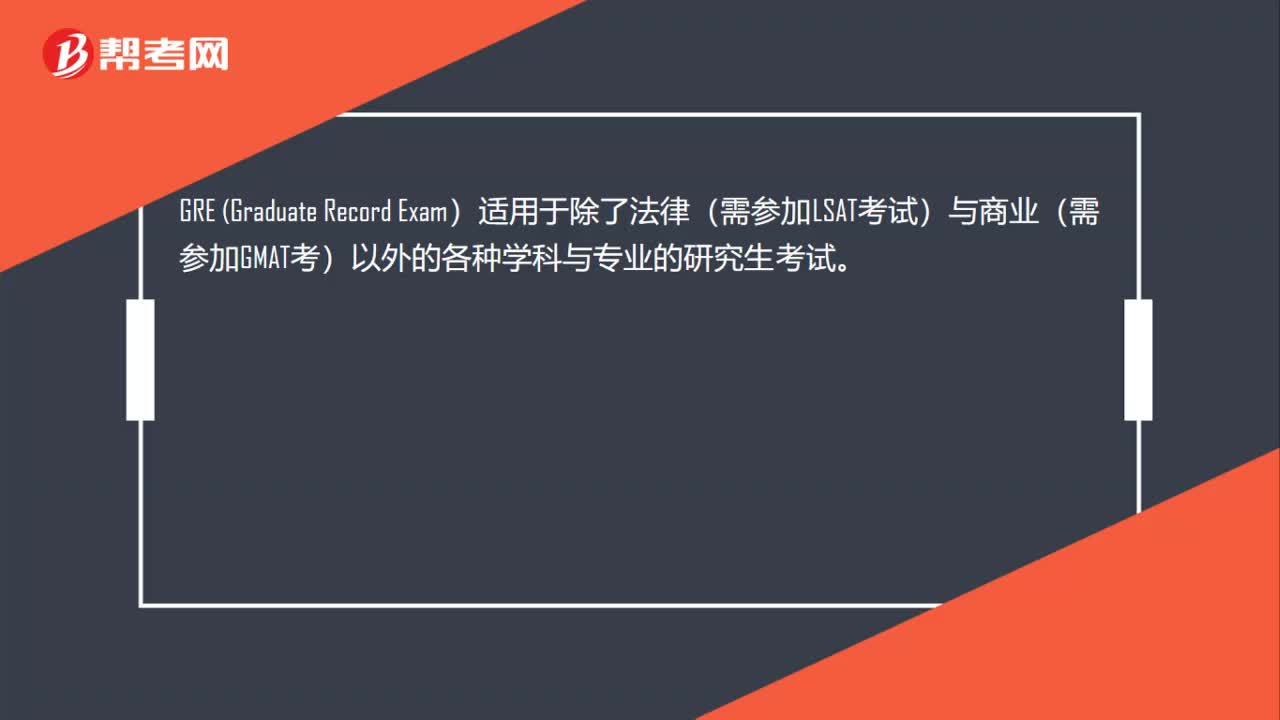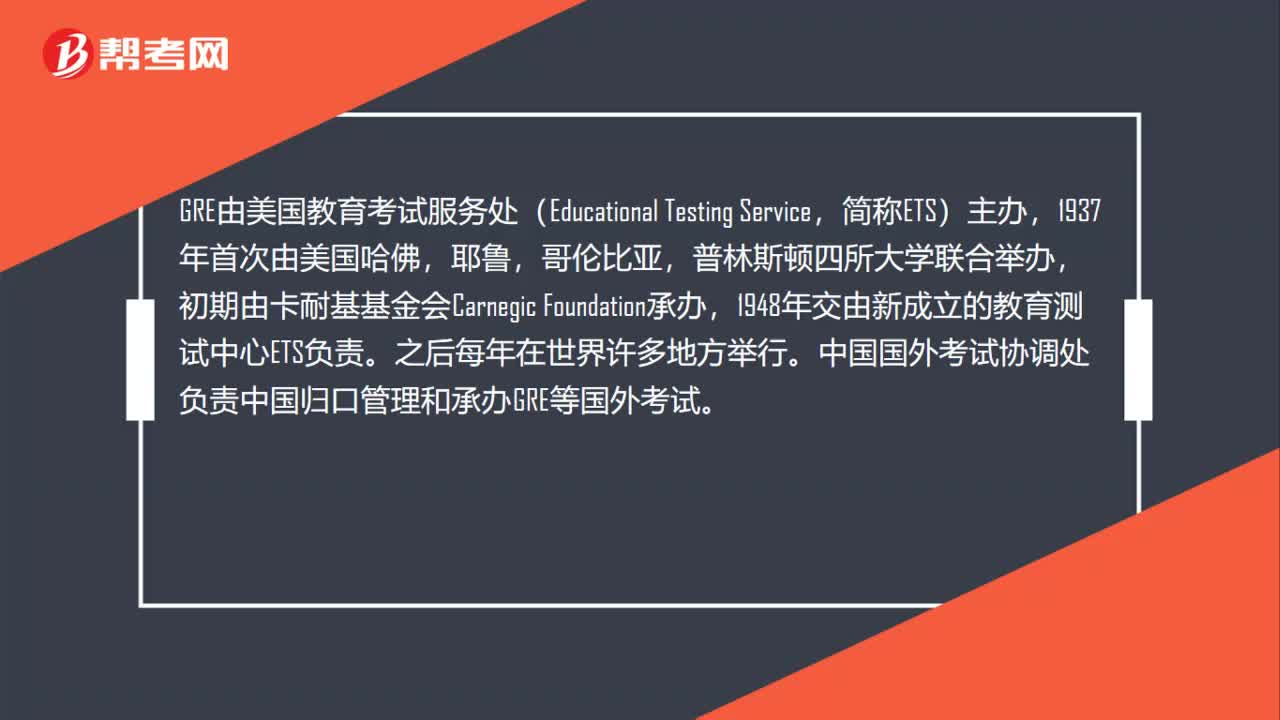
下载亿题库APP
联系电话:400-660-1360

下载亿题库APP
联系电话:400-660-1360

请谨慎保管和记忆你的密码,以免泄露和丢失

请谨慎保管和记忆你的密码,以免泄露和丢失

小伙伴们,GRE考试大家复习的怎么样了呢?下面是帮考网分享的GRE考试作文部分的复习资料,一起来看看吧!
GRE写作范文十九
"Both the development of technological tools and the uses to which humanity has put them have created modern civilizations in which loneliness is ever increasing."
I disagree with the argument that "Both the development of technological tools and the uses to which humanity has put them have created modern civilizations in which loneliness is ever increasing."" Arguments can be made for this thesis, but they depend largely upon what I believe to be a poor definition of "loneliness".
If one defines loneliness as the absence of as much physical, face-to-face contact with other people, then this argument is probably true. The invention of modern telecommunications devices such as telephones, fax machines, and computers has definitely cut down on the amount of physical contact with other people. This is especially true in recent times due to the extremely rapid expansion of the Internet. E-mail and tele-conferencing are direct substitutes for physical contact, especially in the business world.
However, I believe that loneliness can be better measured by intellectual contact with other individuals. Unarguably, modern technology makes this faster and easier, with better communication with a larger number of people. Some employers have argued that productivity is lessened since they have had computers linked to the Internet, as the employees spend much of their time "chatting" with friends, acquaintances, or business contacts across the country. This is probably not a good thing for the employers, but it demonstrates the increased degree of communication due to modern technology.
Of course, some technologies have increased loneliness by any standards, such as the automobile or other transportation mechanisms. These encourage substantially longer commutes between home and work. Automobiles have made possible the pattern of suburbanization that has been in place in the United States since immediately after World War Two. Time spent commuting is generally unproductive and spent alone, unless the individual in question is car-pooling or using mass transit. The contribution of the commuting culture to loneliness may actually be changing now due to new technology that is being invented and used by the general public. Popular new devices, such as the cellular phone, the laptop computer, and the combination thereof may actually convert commuting time to a period of increased communications between people, to "pass the time". This will be especially true as use of mass transit grows, which will probably happen, due to problems with gas shortages, air pollution, and the creation of further mass transit by federal and local governments.
The motivation for the declaration that loneliness is increasing may be due to the fact that many people, especially blue-collar workers, are unable to afford or use these new devices. However, since the advent of the personal computer, the price per computing power has continually lowered rapidly, and this trend shows no sign of changing. Several companies, such as Sun Microsystems and Oracle have announced that they are attempting to develop terminals with little computing power, but a full capability to access the Internet. These devices will be in approximately the $500 price range, which is much more reasonable than the price of the current top of the line PC. In addition, to cater to a larger mass of the public, software companies have been carefully making their products easier to use by non-"computer nerds". This trend is not likely to cease.
In conclusion, although early development of modern transportation may have increased loneliness, I believe that more recent technologies are actually doing the opposite, stimulating interpersonal contact and encouraging intellectual expansion. The perception that the opposite is true derives from what I believe is poor definition of loneliness and the difficulty that the working class has in acquiring and using modern telecommunications devices.
好了,各位小伙伴根据自己的情况进行查阅,希望本文对各位有所帮助,预祝各位取得满意的成绩,如需了解更多相关内容,请关注帮考网!
 44
44GRE考试一般要准备多久?:GRE考试一般要准备多久?这个因人而异。如果已经考过托福基础比较好的话,复习一两个月也能考到比较满意的分数。如果基础不是很好,就得集中时间大量突破,兵贵速不贵久。GRE的战线拖得太长也不好,后期会很疲累,一般来说六至八个月可以了,后面多加两个月可以增加信心分。
 31
31GRE考试适用范围是什么?:GRE Graduate Record Exam)适用于除了法律(需参加LSAT考试)与商业(需参加GMAT考)以外的各种学科与专业的研究生考试。
 58
58GRE考试是什么?:GRE考试是什么?GRE由美国教育考试服务处(Educational Testing Service,简称ETS)主办,1937年首次由美国哈佛,耶鲁,哥伦比亚,普林斯顿四所大学联合举办,初期由卡耐基基金会Carnegic Foundation承办,1948年交由新成立的教育测试中心ETS负责。之后每年在世界许多地方举行。中国国外考试协调处负责中国归口管理和承办GRE等国外考试。